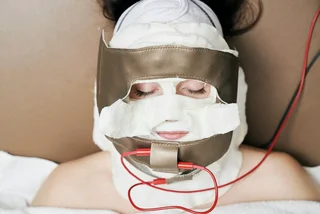The number of people seeking mental health services in the Czech Republic has noticeably spiked over the last couple of years. However, the high cost of treatment, coupled with the fact that English-language therapists, especially for kids, are hard to come by has many foreigners struggling to find relief.
AdiCare, a clinic offering comprehensive mental healthcare services for English-speaking clients in Prague and more recently Brno, is on a mission to give the local expat community more options – without the long wait times often associated with this medical niche.
The Vršovice clinic, located on a quiet side street just down the hill from Náměstí Míru, works with adults and children from 12 years of age.The clinic's care is provided by more than 50 professionals, while maintaining a family atmosphere and a discreet environment. AdiCare specializes in treating depression and anxiety, as well as addiction disorders, eating disorders, sleep disorders, personality disorders, ADHD/ADD and burnout syndrome.
The private clinic provides individual psychotherapy, group psychotherapy, couples and family psychotherapy, medication management, addiction services and neurological examinations. Individual professionals – psychiatrists, psychologists and therapists – communicate with each other throughout the therapeutic process to ensure holistic care.
The Czech public healthcare system seems sorely ill-equipped to take on today’s wide-ranging mental health issues, which have increased by about 10 percent in recent years, according to the National Institute of Mental Health (NUDZ).
Making things even harder for foreigners – one of the country’s fastest growing vulnerable groups – is the reality that most therapists who take public health insurance do not offer their services in English, forcing many to turn to private practices for more immediate, and oftentimes more effective, help.
While depression, anxiety and alcohol abuse continue to drive demand for mental healthcare services, medical experts point to several other mitigating factors that have added to a recent upward shift: The Covid pandemic’s devastating social and economic consequences. Dueling conflicts in Ukraine and Gaza. Soaring inflation rates that show no sign of easing. Social media use, which is shaping how both adults and teens perceive the world around them.
In addition to these triggers, expats also face a unique set of challenges that if not addressed properly can have a damaging impact on their mental health. Adapting to a life in a foreign country can be complicated by language barriers, social isolation or even culture shock, putting foreigners at a greater risk of mental health issues.
“All these changes and adaptations to a new home, which is not just about a new place and space but about creating a secure and comfortable environment for living, can be exhausting and lead to so-called ‘expat depression’ and anxiety,” says Andrea Dally, a lead therapist at AdiCare.
“Depression is not only a bad mood but is also often accompanied by changes in sleep, appetite, problems with concentration and memory. People are afraid, or they simply do not have the strength to seek professional help, which is a pity because mood and anxiety disorders can be effectively treated by different types of treatment such as psychotherapy and pharmacotherapy.”
The Czech Republic’s troubling history with mental health stigma can add another layer of resistance.
“Over the last decades, enlightenment has helped to reduce the level of stigma considerably, especially in the Czech Republic. However, people may still experience fear and shame when seeking professional help in this area,” Dally says. “But depressive and anxiety disorders can occur in any of us, just like the common cold. Like other somatic illnesses, depression and anxiety have a physiological basis and definitely are not a sign of weakness.”
Having treated foreigners since opening its doors a decade ago, AdiCare is adept at helping expats work through depression and anxiety.
The clinic stresses the importance of taking care of your mental health as much as you do your physical health. A regular daily routine can support your wellbeing when adapting to a life in a new country. This might mean going to bed and getting up at the same time every day, sleeping seven to nine hours a day, having regular meals and physical activity.
Regular leisure activities and work-life balance are also important in preventing depression. When feeling homesick or lonely, contacting a friend or family member can be helpful. Building a new social support network or joining local expat communities can support your social needs.
“If you are feeling overwhelmed and have started to observe signs of depression or anxiety, it is advisable to seek professional care,” says Dally.
Treatment at AdiCare begins with a non-binding initial and diagnostic consultation. During this meeting, an experienced professional will conduct a diagnostic interview and, if necessary, administer diagnostic tests in order to determine the severity of the problem and recommend further treatment.
If you need help with booking an appointment, you can contact AdiCare by phone +420 739 375 763 or by email at info@adicare.cz. English-speaking assistants are available on Wednesday from 2 to 5 pm, and on Thursday and Friday from 9 am to 5 pm.












 Reading time: 4 minutes
Reading time: 4 minutes 





















